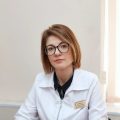The history of medical education in Kuban dates back to 1920, when the Medical Faculty of Kuban State University was founded. Just a year later, thanks to the efforts of outstanding scientists and the support of the Red Army, it transformed into an independent educational institution - the Kuban Medical Institute. The Medical Faculty became its first and for many years the only educational unit, laying the foundation for training doctors for the entire region.
The first dean and rector of the institute was elected Nikolai Fedotovich Melnikov-Razvedenkov - a scientist of world renown, whose contribution to the development of medicine and education is difficult to overestimate. During the difficult years of revolution, the war period and its aftermath, the faculty not only trained highly qualified specialists for practical healthcare but also continued to be a stronghold of medical science.
In the post-war decades, faculty graduates restored healthcare in Kuban and laid the foundations of modern medical schools.
In 1969, a significant event occurred in the institute's history - the Pediatric Faculty was opened, which placed the university among the largest medical centers in the North Caucasus. Its creation was initiated by Associate Professor V.P. Nastenko, who later became the first dean of the faculty. The need for pediatricians was enormous, and the faculty quickly became a training ground not only for the Krasnodar Krai but also for neighboring regions.
Based on the historically established fundamental scientific school, clinical directions have been formed that are reaching a new level of development.
Since September 1, 2025, the academic departments of the Medical and Pediatric Faculties have been merged into the Institute of Clinical Medicine of the University. Training of future doctors is conducted in two areas: "General Medicine" and "Pediatrics". The Institute has inherited the best traditions of both faculties: the fundamental nature of the medical direction and the specialized training of the pediatric school.
This merger reflects modern trends in medicine, where multidisciplinary approaches and universal training of future specialists are becoming key.
The educational program includes mastering fundamental disciplines with the subsequent opportunity to acquire professional competencies in the field of clinical medicine.
That is why the Institute of Clinical Medicine is implementing new learning formats, increasing the volume of practical components, and enhancing the implementation of digital technologies in training programs. For this purpose, starting from the first years, students begin to practice practical skills in the Multi-Profile Accreditation and Simulation Center, and later continue to consolidate the acquired skills during internships in healthcare institutions of various levels.
The creation of the Institute of Clinical Medicine is a new stage in the development of medical education, where doctors of the new generation will develop clinical thinking while adhering to the values of humanism and mercy.
The Institute of Clinical Medicine is the heir to a glorious past and the creator of a proud future!


